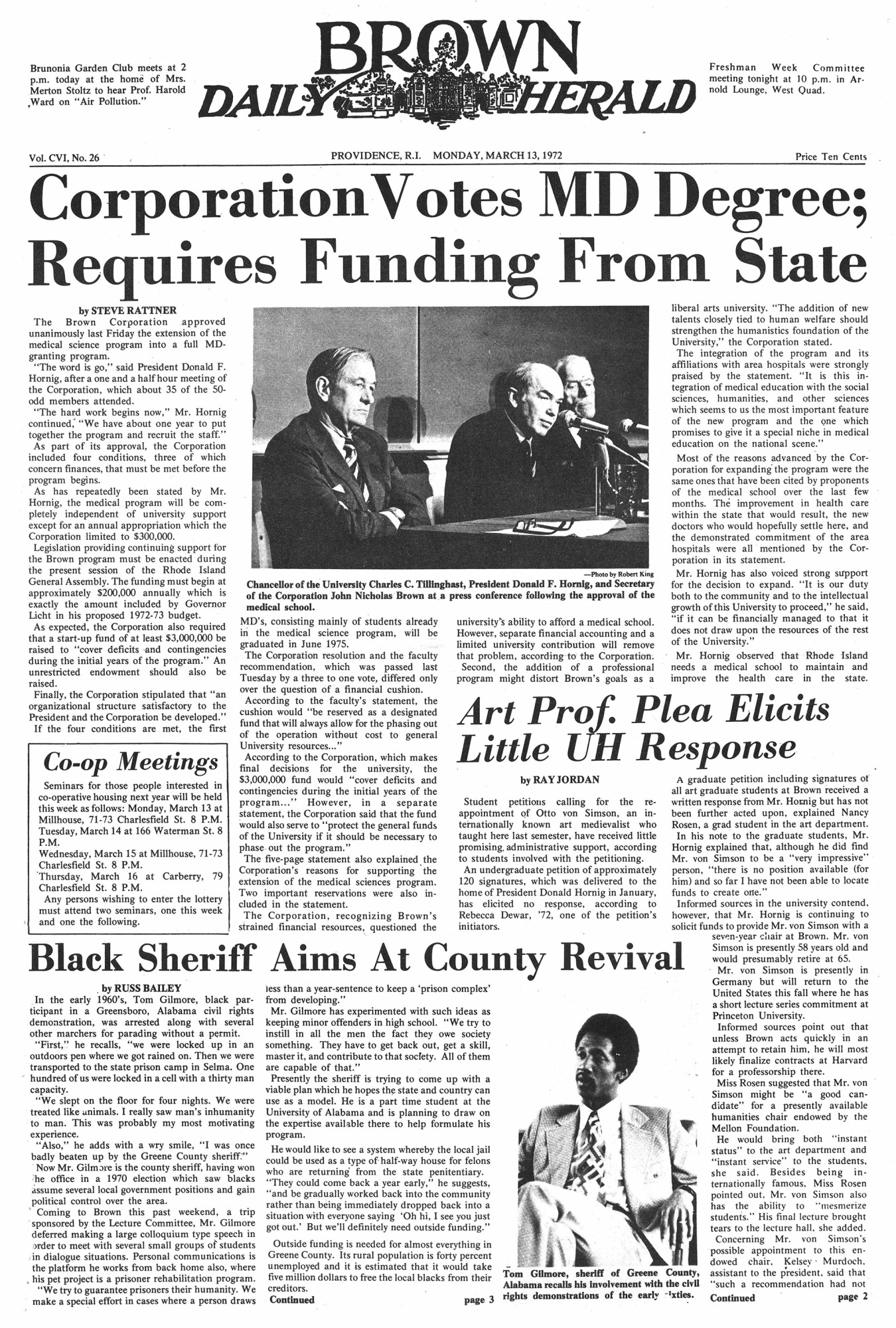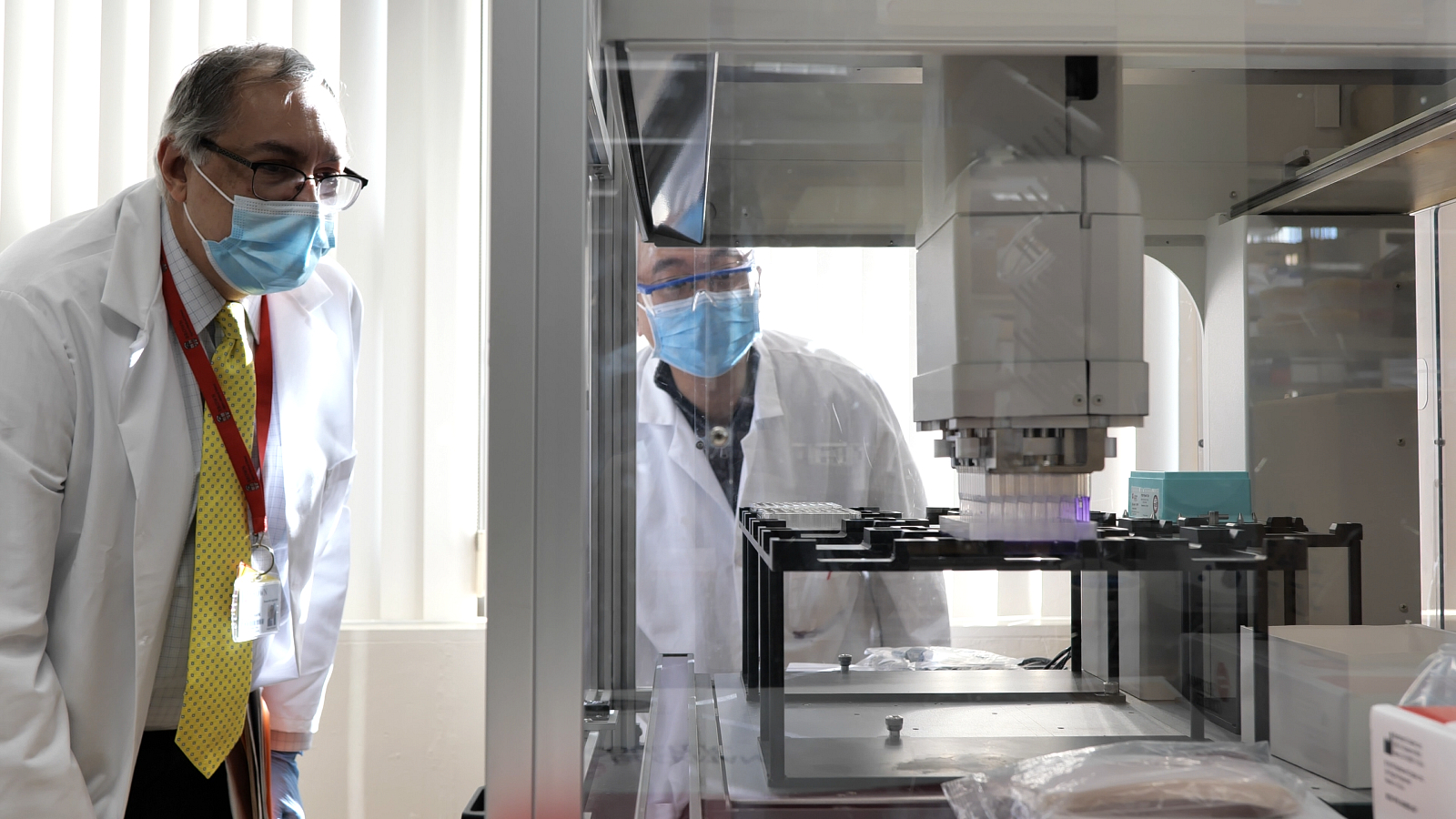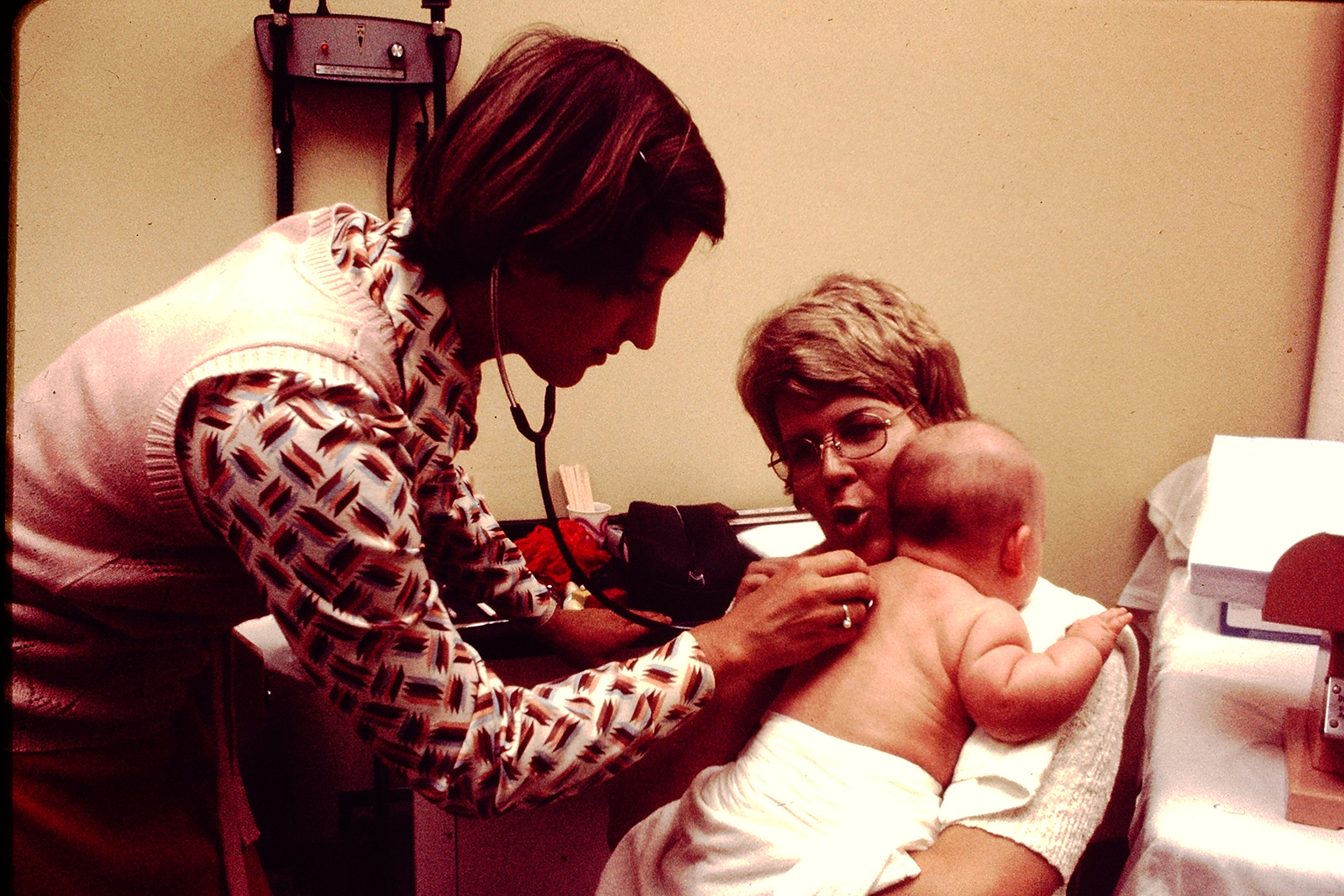PROVIDENCE, R.I. [Brown University] — On March 10, 1972, the Corporation of Brown University approved the creation of a four-year medical education program, paving the way for Rhode Island’s first and only medical school. Fifty years later, the University is launching a celebration of decades of impact in medical education and research, the contributions of the 3,893 physicians who have earned M.D.s and the innovative path ahead for the Warren Alpert Medical School.

The “50 Years of Medicine at Brown” celebration will kick off with a community event on the evening of Friday, April 29 and continue through June 2023, concluding the end of the next academic year. A series of celebratory, reflective and scholarly activities will honor distinctive and innovative elements of Brown’s approach to medical training and biomedical innovation, characterized by a unique focus on promoting the health of individuals and communities through service to society. This is reflected in the medical program’s close relationship with Tougaloo College, a historically black college in Mississippi; its focus on transformative and socially responsible education, health care delivery and biomedical research; and the local and global contributions of its physician-scientists working toward improved clinical practice, treatments and cures.
Dr. Michele G. Cyr, senior associate dean for academic affairs at the medical school and chair of the 50 Years of Medicine Steering Committee, said the celebration will explore the school's history and how its design has shaped not only the school’s evolution over 50 years, but also served as an indication of where the field of medicine would eventually go. According to Cyr, the school has remained committed to the ethos of “embracing liberal arts education as essential to developing compassionate, humanistic physicians.”
“Focusing on the social as well as the personal dimensions that affect an individual’s health was a novel concept 50 years ago,” Cyr said. “The founders were ahead of their time to be thinking about that as central to medical education at Brown. But what they started in 1972 has now been widely adopted — today, any well-trained physician is constantly factoring in the ‘social determinants’ of health as they approach a person’s care.”


